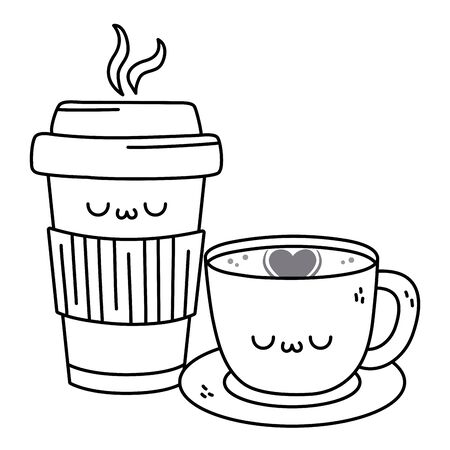1. Understanding Intermittent Fasting
Intermittent fasting (often called IF) is a popular eating pattern in the United States that focuses more on when you eat than what you eat. Instead of traditional diets that restrict certain foods or count calories, intermittent fasting alternates between periods of eating and fasting. This approach has gained popularity because it’s simple, flexible, and doesn’t require cutting out your favorite foods.
Popular Intermittent Fasting Methods in the U.S.
There are several ways to practice intermittent fasting. Here are some of the most common methods Americans use:
| Fasting Method | Description | Typical Eating Window |
|---|---|---|
| 16:8 Method | Fast for 16 hours, eat during an 8-hour window | 12 PM – 8 PM |
| 5:2 Diet | Eat normally for 5 days, restrict calories (500–600) for 2 non-consecutive days | No specific time window |
| Alternate-Day Fasting | Alternate between a day of normal eating and a day of fasting or very low calorie intake | No specific time window |
| Eat-Stop-Eat | 24-hour fast once or twice per week | No eating for a full day, then resume regular meals |
How Intermittent Fasting Affects the Bodys Metabolism
When you fast, your body goes through several changes that can influence metabolism and overall health. During a fasted state, insulin levels drop, which helps your body access stored fat more easily. At the same time, human growth hormone (HGH) levels may increase, supporting muscle gain and fat loss. Fasting also initiates cellular repair processes like autophagy, where cells remove waste products and regenerate themselves.
Main Metabolic Effects of Fasting:
- Lower insulin levels: Helps burn stored fat more efficiently.
- Increased HGH: Supports muscle maintenance and fat metabolism.
- Cellular repair: Promotes longevity and reduces inflammation.
- Improved metabolic flexibility: Teaches your body to switch between burning carbs and fats for energy.
This metabolic shift is one reason why many people feel more energetic and focused while fasting — especially when they combine it with black coffee. In the next section, we’ll explore how coffee fits into this picture and whether it supports or disrupts the fasting process.
2. What Happens When You Drink Coffee While Fasting
Drinking black coffee during intermittent fasting is a common habit for many people, and it can actually support your fasting goals—if done right. Let’s break down how black coffee interacts with your body while youre in a fasted state.
How Black Coffee Affects Insulin Levels
One of the main concerns during a fast is anything that might spike insulin. The good news? Black coffee is virtually calorie-free and doesn’t contain sugar or fat, which means it has little to no impact on your insulin levels. This makes it a safe choice for most intermittent fasting plans.
Insulin Response Table
| Beverage | Calories | Impact on Insulin |
|---|---|---|
| Black Coffee (no additives) | 0-5 | Minimal to none |
| Coffee with Sugar | 20-50+ | Moderate to high |
| Coffee with Cream/Milk | 30-100+ | Variable; may break fast |
Coffee’s Role in Digestion During a Fast
Even without food, your digestive system keeps working—and coffee can stimulate gastric acid production, which may lead to an empty-stomach “growl” or even slight discomfort for some people. However, this varies from person to person. If you’re sensitive, try limiting intake or drinking coffee later in your fasting window.
Hunger Suppression Benefits
Caffeine is known for its appetite-suppressing effects. Drinking black coffee can help reduce feelings of hunger, especially during the tough early hours of your fast. It works by stimulating the central nervous system and boosting energy levels—making it easier to stay focused and stick with your fasting plan.
Key Takeaways:
- No calories = No insulin spike: Black coffee won’t break your fast.
- Aids hunger control: Caffeine helps reduce appetite naturally.
- Might irritate sensitive stomachs: Watch out if you feel discomfort after drinking it on an empty stomach.
If youre following intermittent fasting and love your morning cup of joe, plain black coffee is generally safe and might even make fasting easier for you.

3. The Role of Caffeine in Metabolism and Fat Burning
When youre intermittent fasting, your body switches from using glucose as its main energy source to burning stored fat. Coffee, especially the caffeine in it, can support this process and even enhance some of the benefits of fasting.
How Caffeine Boosts Your Metabolism
Caffeine is a natural stimulant that affects your central nervous system. One of its biggest perks is that it can increase your metabolic rate — which means your body burns more calories at rest. This is great news if youre fasting to lose weight or improve metabolic health.
Energy Expenditure Before and After Caffeine Intake
| Condition | Calories Burned per Hour (Approx.) |
|---|---|
| Without caffeine | 70-80 |
| With caffeine (average dose) | 85-95 |
This small increase might not seem like much at first, but over time and combined with regular fasting, it can help amplify your results.
Caffeine and Fat Oxidation: Turning Fat into Fuel
Fat oxidation is the process where your body breaks down stored fat to use as energy. During a fast, your insulin levels drop, which naturally encourages fat burning. Adding caffeine to the mix can give this process a boost. Studies suggest that caffeine increases adrenaline levels, which signals fat cells to break down their contents for energy use.
Why This Matters for Intermittent Fasting
If one of your goals with intermittent fasting is to burn fat more efficiently, coffee can be a helpful tool. It supports what your body is already doing during a fast — using fat stores for fuel — but may do it faster or more effectively with caffeines help.
Quick Recap: Benefits of Caffeine During Fasting
- Increased metabolism: Helps you burn more calories even while at rest.
- Enhanced fat oxidation: Encourages your body to break down fat for energy.
- Improved focus and alertness: Helps you stay energized during your fasted hours.
In short, drinking black coffee during your fasting window doesn’t just help curb hunger — it also works hand-in-hand with your body’s natural processes to support fat loss and energy use.
4. Does Coffee Break Your Fast?
When youre intermittent fasting, one of the most common questions is whether coffee breaks your fast. The short answer? It depends on how you take your coffee. Lets break it down and see what types of coffee are safe during a fast and which ones might interrupt the fasting state or kick you out of ketosis.
Black Coffee: Fasting-Friendly
Plain black coffee is generally considered safe during intermittent fasting. It has virtually no calories, carbs, or sugar, so it doesnt spike insulin levels or break your fast. In fact, it can even enhance some of the benefits of fasting like fat burning and mental clarity.
Nutritional Info for Black Coffee (8 oz)
| Component | Amount |
|---|---|
| Calories | ~2 |
| Carbs | 0g |
| Sugar | 0g |
| Fat | 0g |
| Protein | 0g |
Coffee with Additives: A Gray Area
Additives like cream, sugar, flavored syrups, or milk can change the game. These ingredients introduce calories and carbs, which may disrupt your fasting state by triggering insulin response or knocking you out of ketosis.
Common Additives and Their Impact on Fasting
| Additive | Calories (per serving) | Fasting Safe? | Keto Friendly? | |||||||||||||||||||||||||||||||
|---|---|---|---|---|---|---|---|---|---|---|---|---|---|---|---|---|---|---|---|---|---|---|---|---|---|---|---|---|---|---|---|---|---|---|
| Sugar (1 tsp) | 16 | No | No | |||||||||||||||||||||||||||||||
| Whole Milk (1 tbsp) | 9 | No* | No* | |||||||||||||||||||||||||||||||
| Heavy Cream (1 tbsp) | 50 | Maybe** | Yes** | |||||||||||||||||||||||||||||||
| MCT Oil (1 tbsp) | 100+ | Maybe** | Yes** | |||||||||||||||||||||||||||||||
| Sugar-Free Syrup (1 tbsp) | <5 (varies) | Maybe** | Varies by brand** | |||||||||||||||||||||||||||||||
| Coconut Oil (1 tbsp) | 120+ | Maybe** | 5. Best Practices for Drinking Coffee During a Fast
| Time of Day | Why It Works |
|---|---|
| Morning (6 AM – 10 AM) | Boosts alertness, helps suppress appetite early in the fast |
| Late Morning (10 AM – 12 PM) | Keeps energy up without interfering with sleep later |
| Avoid after 2 PM | Caffeine may disrupt sleep quality at night |
📏 Portion Control: Don’t Overdo It
While black coffee has almost no calories and won’t break your fast, drinking too much can lead to jitters, increased heart rate, or even stomach discomfort. Stick to a moderate amount—usually no more than 2-3 cups per fasting period.
Suggested Daily Intake
| Type of Coffee | Serving Size | Fasting-Friendly? |
|---|---|---|
| Black Coffee (no sugar or cream) | 8 oz per cup; up to 24 oz/day | ✅ Yes |
| Coffee with MCT Oil or Butter (e.g., Bulletproof) | 1 cup; occasional use only | ⚠️ Maybe – breaks strict fast but may support fat metabolism |
| Sugary Lattes or Creamy Drinks | N/A | ❌ No – breaks your fast due to calories & sugar |
🚫 What to Avoid Adding to Your Coffee
If you’re trying to stay in a fasted state, what you put in your coffee matters just as much as the coffee itself. Here’s a quick guide:
Additives to Avoid While Fasting:
- Sugar: Even small amounts can spike insulin and break your fast.
- Creamers: Most contain added sugars and calories.
- Syrups or flavored sweeteners: These often include hidden carbs.
- Dairy milk: Contains natural sugars that may break a clean fast.
Fasting-Friendly Add-Ins:
- Cinnamon: Adds flavor and may help regulate blood sugar.
- A dash of pink Himalayan salt: Replenishes electrolytes.
- MCT oil (in moderation): Useful for those following fat-fueled fasting strategies like keto.
If youre unsure whether an ingredient will break your fast, remember this rule of thumb: if it contains calories, especially from carbs or protein, its probably not safe during the fasting window. Keep it simple—black coffee is always a safe bet!
6. Potential Side Effects and Who Should Be Cautious
While coffee can offer some benefits during intermittent fasting—like appetite suppression and enhanced alertness—it’s not for everyone. Some people may experience unwanted side effects, especially when drinking coffee on an empty stomach. Its important to understand who should be more careful with their caffeine intake during a fast.
Who Might Need to Limit Coffee During Fasting?
Certain individuals are more sensitive to the effects of caffeine or may have health conditions that could be aggravated by coffee consumption while fasting. Heres a quick look at who should consider limiting or avoiding coffee:
| Group | Why They Should Be Cautious |
|---|---|
| People with caffeine sensitivity | May experience jitteriness, anxiety, or heart palpitations even with small amounts of coffee |
| Individuals with acid reflux or ulcers | Coffee can increase stomach acid, potentially worsening symptoms |
| Those with high blood pressure | Caffeine can cause temporary spikes in blood pressure, which may be risky for some |
| People with sleep issues | Drinking coffee too late in the day—even during a fast—can disrupt sleep patterns |
| Pregnant or breastfeeding women | Caffeine crosses the placenta and can affect the baby; moderation is key |
Signs You Might Be Overdoing It
If youre fasting and notice any of these symptoms after drinking coffee, it might be time to cut back:
- Increased heart rate or feeling shaky
- Nausea or upset stomach
- Trouble falling asleep or staying asleep
- Anxiety or irritability
- Frequent headaches
Tips for Sensitive Individuals
If you’re sensitive to caffeine but still want to enjoy coffee while fasting, consider these options:
- Try decaf: It contains less caffeine but still offers that comforting ritual.
- Dilute your brew: Add more water to reduce overall caffeine strength.
- Avoid sugary add-ins: Stick to black coffee to stay within your fast.
- Time it right: Drink earlier in your fasting window to avoid sleep disruptions.
Coffee can be a helpful tool during intermittent fasting, but it’s not one-size-fits-all. Pay attention to how your body reacts and adjust accordingly.


